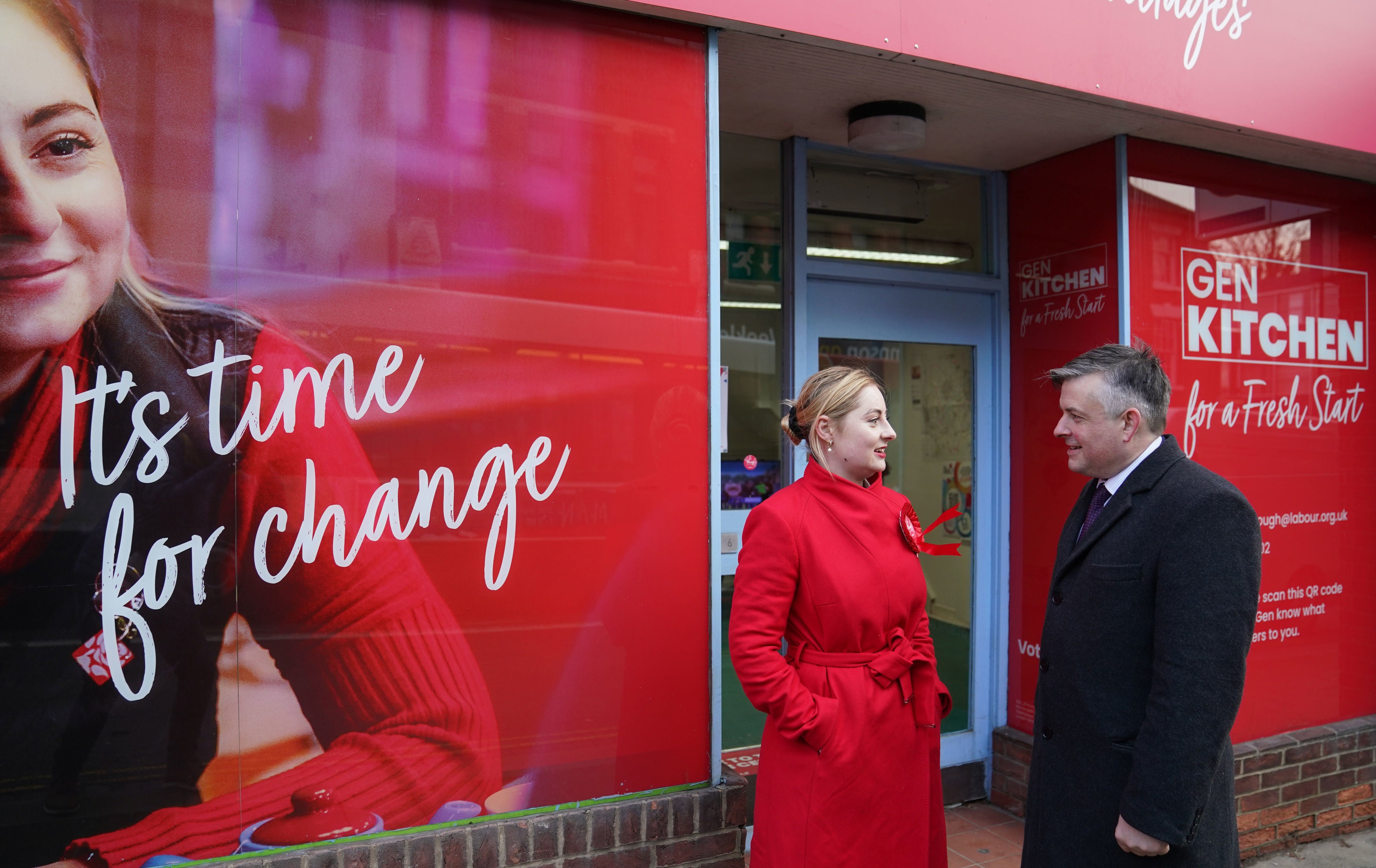Can Labour be confident of inflicting yet more Tory by-election defeats?
Two big tests are already under way in Wellingborough and Kingswood, but there could be even more to come, as Sean O’Grady explains


When Boris Johnson led the Conservatives to victory at the December 2019 general election, his overall parliamentary majority of 80 seats was the biggest for any government since Tony Blair in 2001 (167), and for any Tory government since Margaret Thatcher in 1987 (102).
Impressive as this was, commentators weren’t sure how to characterise it: “landslide” normally denotes three figures or thereabouts; “working” perhaps 40-plus. At any rate, it seemed substantial and unassailable at the time, but seems less so now. Attrition is making life much more hazardous for the Tory whips. A constant stream of by-elections and whip withdrawals has reduced Rishi Sunak’s majority to about 50, and his fractious party has enough assorted rebels easily to exceed that on key votes. Soon, that majority may be denuded even further by yet more by-elections…
Who’s next for a by-election?
There are four in play. Two will take place for certain on Thursday 15 February (narrowly missing an opportunity for feeble jokes about a Valentine’s Day massacre) in seats held by the Conservatives at the 2019 election: Wellingborough, in Northamptonshire, and Kingswood, near Bristol.
There is the possibility of two further by-elections, coincidentally both in Blackpool. Scott Benton, currently Conservative MP for Blackpool South, is appealing a long suspension from the Commons over allegations of paid lobbying, which he denies. If his appeal fails, he will be subject to a recall petition, which, if supported by 10 per cent of his constituents, will trigger a by-election (in which he may stand again if he wishes).
Paul Maynard, pensions minister and MP for Blackpool North, is under investigation by the Independent Parliamentary Standards Authority over allegations that he misused taxpayer-funded constituency facilities for party political purposes. If he is sanctioned, he too may be subject to a recall petition.
Who will win in Wellingborough?
Of the two by-elections next month, Wellingborough is the harder to call, the more challenging for Labour, and the more interesting. Peter Bone, who was forced out after an investigation into allegations of inappropriate personal behaviour, bequeaths a Conservative majority of 18,540, or 35.7 per cent. His successor as Conservative candidate, local councillor Helen Harrison, happens to be his partner (which may or may not help her), and he is certainly well known in the constituency, which he has represented since 2005.
Like Bone himself, Wellingborough is strongly Eurosceptic and has some of the qualities of the “red wall” seats elsewhere in the Midlands and north of England. Thus, even though majorities of a similar size have been overturned by Labour in the last couple of years, Wellingborough might prove trickier.
The contest is complicated by the candidacy of Reform UK deputy leader Ben Habib. Reform, formerly the Brexit Party, hasn’t had much of a showing in local or by-elections in this parliament, but has been building support and now attracts about 15 per cent of people who voted Conservative in 2019. With a vigorous campaign, Reform could well attract enough votes to make a Labour victory easier; such an outcome would obviously lead to yet more questions about Sunak’s leadership.
Who will win in Kingswood?
Although Chris Skidmore has held the seat fairly securely since 2010, it is traditionally more of a Labour-Conservative marginal, and the 2019 majority of 11,220 (22.8 per cent) is obviously vulnerable. Skidmore quit because of Sunak’s decision to drill for more oil in the North Sea. A Tory rout at this by-election would suggest that Sunak’s tilt against net zero and other green ideas – triggered by the Conservative win in the Uxbridge by-election on the back of local anger at Ulez expansion – isn’t necessarily a vote-winner on the national level. However, the Tories here will not have to deal with a Reform candidate, as the party is not contesting this by-election. Unlike in the Mid Bedfordshire and Selby by-elections, there’s no doubt who’s in second place, and the modest Lib Dem vote may switch tactically to Labour.

What about Gary Lineker?
That would be fun, wouldn’t it? The controversial Tory MP for Stoke-on-Trent North, Jonathan Gullis, has challenged the football pundit (equally controversial, but more charming) to stand against him. It’s not clear if the Gullis gauntlet has been thrown down for an immediate by-election or the general election, but either way it doesn’t seem likely to transpire. (If it did, it would simply help Gullis hang on by splitting the progressive vote… unless Labour and the Lib Dems stood aside for Lineker as a cross-party white-knight candidate, as they did for Martin Bell at Tatton in 1997. Lineker might make a fine minister for sport.
What does the national picture tell us?
National opinion polls have been remarkably constant since before the autumn; nothing much seems to shift Labour’s commanding poll lead of between 15 and 20 points. A note of caution: focusing too much on lead can be, well, misleading, because most polls carry a margin of error of about 3 per cent. An apparent slip of 3 per cent by one party and a similar-sized gain for the other looks like a significant change, but in reality, little or nothing may be happening in voters’ minds.
Beyond that is the possibility that polls are painting the wrong picture, either because they are failing to work properly (such as when they failed to pick up the “shy Tories” before 1992) or because voters tend to change their minds as polling day looms (as in 2017, when the supposed Jeremy Corbyn surge against Theresa May ebbed away). Tactical voting can also complicate the scene. At any rate, the polling companies were notably humiliated by general election surprises in 1970, 1992 and 2015 – all of which were Tory wins against expectations.
Labour is anxious to avoid complacency, and is downplaying expectations, but the results of real local and parliamentary by-elections point to a majority Labour government at the next general election. Wellingborough, Kingswood, and maybe now also Blackpool, will be useful indicators as to whether that is changing.
Join our commenting forum
Join thought-provoking conversations, follow other Independent readers and see their replies
Comments
Bookmark popover
Removed from bookmarks